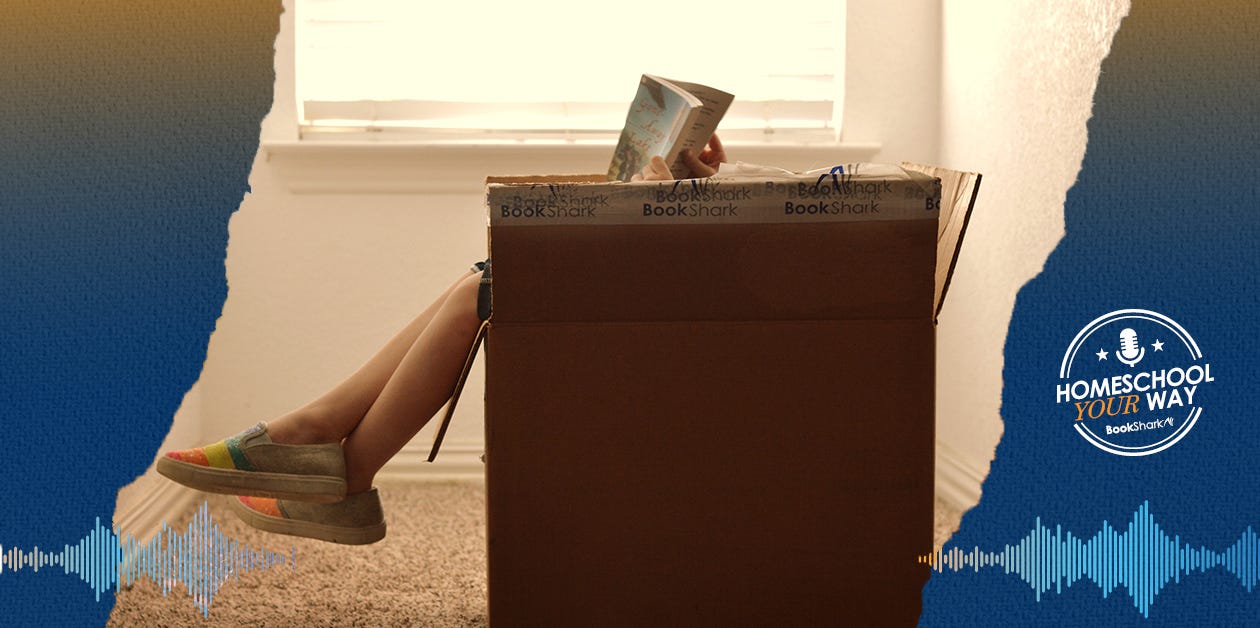3 Ways to Be a Wall for Your Homeschooled Teen
-
 By
Tina Robertson
By
Tina Robertson
- Jun 3, 2020

Calling me in a near panic from his class, my recent homeschool graduate was preparing for his last test in a college business course. Regardless of previous grades, the test was an immediate pass or fail for the entire course. The instructor told the students they would be required to close their laptops, take brief notes, and listen the old-fashioned way. I reminded my son that he had been learning and listening the old-fashioned way since I first taught him how to read. After a few more reassuring words, he was ready for the review and test. Hours went by until I heard back from him.
Being a wall for your homeschooled teen doesn’t stop when he formally finishes high school, but it begins well before he is a teenager. However, the teen years are the most crucial because they are when a teen is learning independence. Resenting limits while at the same time needing them can make for explosive situations in your home.
Here are three ways to be a wall for your teen while maintaining peace in your home.
1. A Wall Supports
Prior to my husband's being in construction, I was unaware of the many specialized walls and their function. For example, a load-bearing wall supports the structure of the house, and if it is removed or altered, there are serious consequences to the entire building. Before teens can make their own walls, they look to you for support.
The Consequences of Fickle Parenting

Set clear and consistent boundaries. Be prepared to repeat rules constantly and calmly. While going through the natural stages of puberty, a teen can have uncontrolled emotions. Don’t add to a stressful time by constantly changing boundaries and becoming a fickle parent. That leads to disrespect and disaster.
For example, as each of my sons entered the teen years, I’ve had to communicate clearly what our family rules are regarding driving time, working outside the home, choosing friends, academic achievement, and conduct with the opposite sex.
Although your teen may look like a full-grown adult, giving your child firm boundaries gives him a foundation of support which will impact how he makes decisions as an adult.
2. A Wall Protects
Teens are vulnerable, unsure, and in need of protection. Your home needs to be a haven for them while they explore the options of their future and learn how to make good decisions.
A lot is written about natural consequences of actions being a good teacher. While I totally agree, it doesn’t mean that we should withhold punishment from a teen who purposefully steps outside of boundaries. Besides not setting a good example of respect for your younger children, an obstinate teen can head for a disastrous course if he does not learn to listen to those who love him.
However, punishing your teen should have a very different purpose than it did when he was little. The focus should be about teaching your teen to think about what kind of person he wants to be and taking ownership over his choices.
Where to Draw the Line
And because there is no way we can stand over our teen’s shoulder to be sure he follows through on what we tell him, it’s important that he learns to think about all of his options before he makes a decision. Small, everyday decisions in adolescence build a pattern of making sound decisions in adulthood.
I always had success when I asked my sons what their friends or another person thought about their negative behavior. This makes a teen think about how his actions affect others.
Try to avoid making your points in the midst of explosive moments or heated arguments. Use times that are relaxed to give your tidbits of advice. Don’t think because he doesn’t open up to you now like he did when he was a child means that he is not listening.
Another successful tip that works with my sons is to have casual conversation instead of direct confrontation. Driving in the car can be a good time because you don't have to make eye contact.
Teens want you to talk with them instead of at them. Don’t talk down to them even if they have momentary lapses of immaturity by eye-rolling and back talking. Remember, they are not adults yet.
3. A Wall Stabilizes
In addition to giving support and surrounding your teen with protection at vulnerable times, he needs stability.
Contrary to what teens may think, sameness in their routine and in their life nurtures sanity and soundness. At a time when life-changing decisions will have to be made soon, the routine of a household and schedule offers security and stability.
As adults, we know life can be routine and work monotonous. But we also know that a good job provides security.
Teens are ready for challenges and crave excitement and independence. In their quest for independence, they may not always make right choices. Teens don’t want you to micromanage every aspect of their life. Don’t dictate every decision, but allow them to flex their decision making muscles. It’s the only way they will get better at making good decisions.
Simplified Parenting
The teen years are equally turbulent and thrilling as teens grow into distinct individuals. And if children are going to become adults prepared to shoulder the responsibilities of adulthood they need direction, they need to be understood, and most importantly they need unconditional love. Shower your teen with support, protect and surround him while he is vulnerable, and provide sameness and stability.
When my son called me back after the exam in the business course, I learned that not only had he passed but he had also scored one of the top grades in the class. I was thrilled that I could be a wall for him in that situation, offering him strength in the moment, rooted in many years of parenting him with support, protection, and stability. Like any proud momma, I celebrated his success with him.
Words hardly seem adequate to express the satisfaction when you see your teens grow into happy and independent young adults. And the best part of being a wall for your teen is the warm and close relationship with them. There is no better gift.
BookShark curriculum can lead your teens towards more independent learning with two History & Literature Packages that include both Student and Parent Guides:
- History of Science & Literature J for ages 14-16
- American History & Literature I for ages 13-15
Your guide still includes the reading assignments, discussion questions, mapping and timeline assignments, all of the answers, and notes specifically for the parent. But your teen gets a guide, too!
Student Guides help them stay on track with assignments and make them accountable for more of their own learning.
About the Author
 Tina Robertson celebrated the graduation of Mr. Senior in 2013 and Mr. Awesome in 2015. Because of her love for new homeschoolers, she mentors moms through her unique program called New Bee Homeschoolers. She loves all homeschoolers, though, as she shares her free 7 Step Curriculum Planner, unit studies, lapbooks and homeschooling how tos. She can't sing, dance, or craft, but she counts organizing as a hobby. She is still in the homeschool trenches blogging at Tina's Dynamic Homeschool Plus.
Tina Robertson celebrated the graduation of Mr. Senior in 2013 and Mr. Awesome in 2015. Because of her love for new homeschoolers, she mentors moms through her unique program called New Bee Homeschoolers. She loves all homeschoolers, though, as she shares her free 7 Step Curriculum Planner, unit studies, lapbooks and homeschooling how tos. She can't sing, dance, or craft, but she counts organizing as a hobby. She is still in the homeschool trenches blogging at Tina's Dynamic Homeschool Plus.












